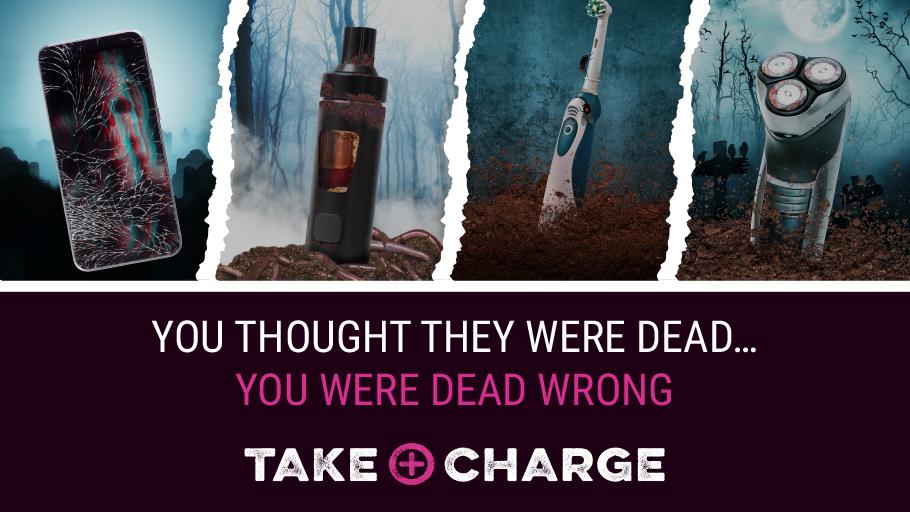The campaign urges people across the UK to Recycle Batteries Responsibly by using specialist battery and electrical device recycling services, which will help reduce the growing number of serious fires started by carelessly discarded batteries.
When they are thrown away with the general rubbish, or mixed with other recycling, hidden “zombie batteries” can easily return from the dead and cause serious fires once collected – particularly higher-powered lithium-ion batteries which are now common across a wide range of household devices from phones and laptops, to power tools, children’s toys, e-bikes and scooters, and even vape devices.
Dead batteries thrown away with other waste and recycling are likely to be crushed or punctured once the waste is collected and processed. Some battery types can ignite or even explode when they’re damaged in waste collection and treatment processes. Once this happens, the batteries can set fire to other materials present in the waste, like paper and card, leading to serious incidents that, in some cases, put lives at risk and disrupt vital waste services.
An independent report published in 2021 found that nearly 50% of all recycling and waste fires in the UK (hundreds each year) are started by lithium-ion batteries alone and that the total annual cost of these fires exceeds £150 million.
Although safe to use normally, lithium-ion batteries are particularly prone to causing fires or explosions if they are not recycled properly. These batteries are most commonly found in products like laptops, tablets, mobile phones, radio-controlled toys, Bluetooth devices, shavers, electric toothbrushes, power tools, scooters and even e-cigarettes.
Lead Cabinet Member for Environment Services at South Cambridgeshire District Council, Cllr Henry Batchelor said: “It’s easy to recycle dead batteries in South Cambridgeshire or Cambridge by simply popping them in a small plastic bag, tying it closed and placing it on top of your wheelie bin lid for our recycling or waste crews to collect. You can leave batteries on top of black, green or blue bins. Check the ‘What Goes In Which Bin’ directory on our council websites for details.”
Executive councillor for Climate Action and Environment at Cambridge City Council, Cllr Rosy Moore said: “Gadgets with built-in batteries like electric toothbrushes, shavers or phones can be recycled in our pink collection banks for small electricals, and at other places like shops too. Vapes need to be taken back to vape shops or supermarkets that accept them, or to the large Household Recycling Centres like those at Milton or Thriplow. You can find your closest collection points on the Take Charge website.”
Residents can find out where to recycle batteries responsibly in their area, and more about the dangers of Zombie Batteries, by visiting the campaign website at www.takecharge.org.uk


